This post may contain affiliate links. Please read our disclosure.
Making your own protein bars is super easy! Homemade protein bars save you money and taste so much better than the bars you can buy!
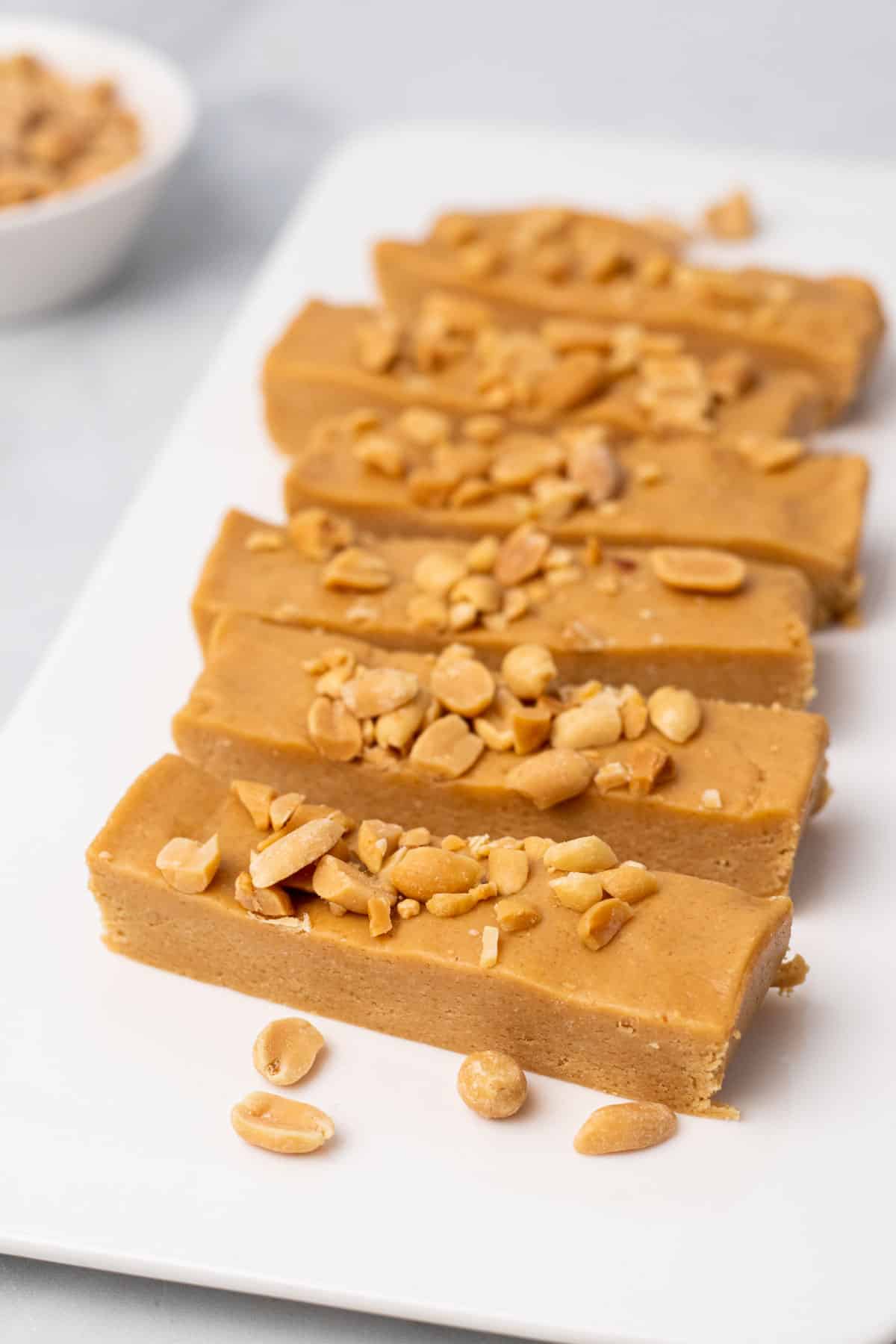
These keto protein bars only contain 6 healthy ingredients and use one bowl to prepare.
You can use whatever nut or seed butter you currently prefer and they will always come out perfectly.
How to make homemade protein bars
Step 1: Measure all the ingredients. Line a small loaf pan with parchment paper and set aside (or use a non-stick loaf pan).
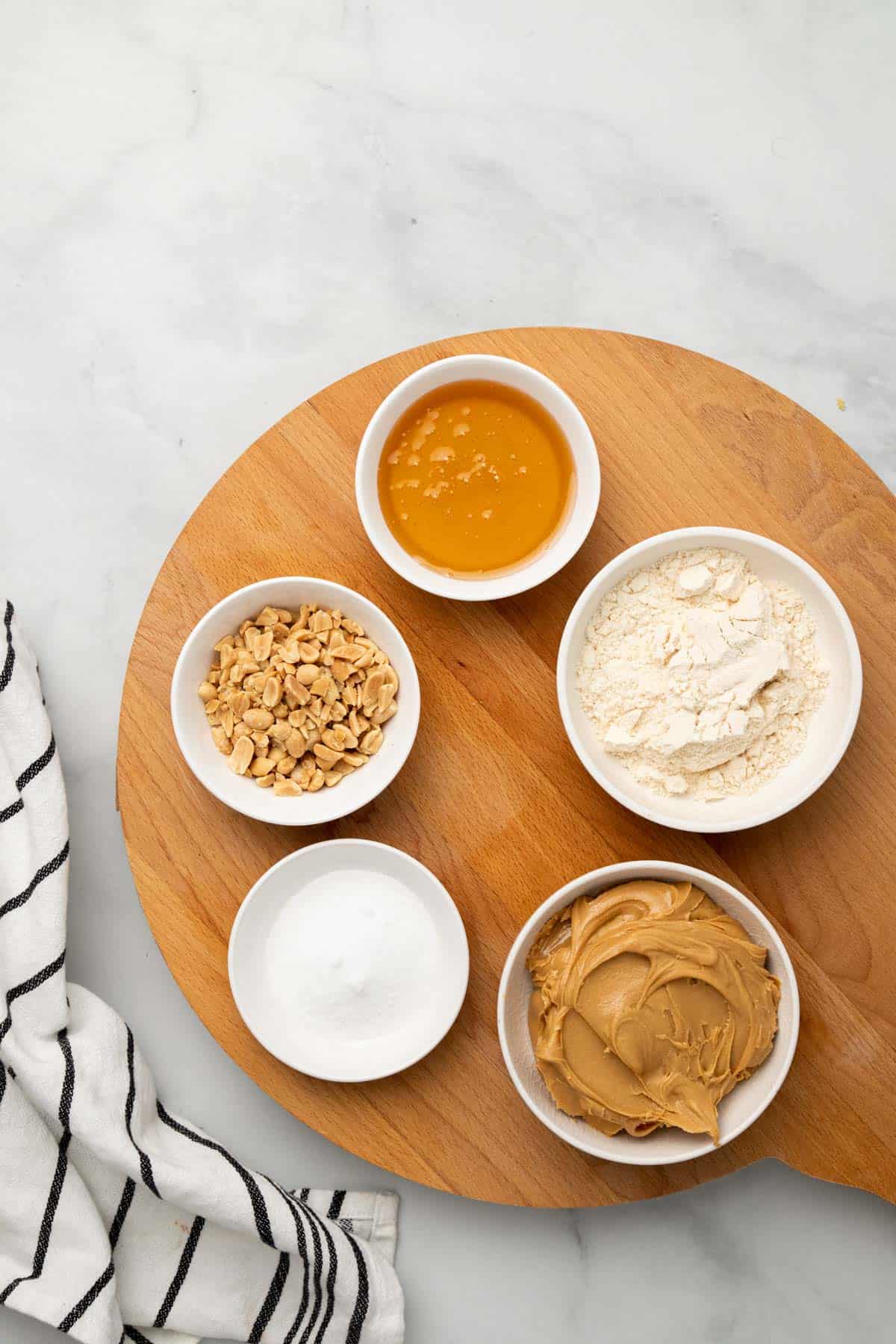
Step 2: In a large glass or microwave-safe bowl, combine your nut butter and sugar-free syrup. Heat it for 1 – 2 minutes in the microwave, mixing every 15 seconds until smooth and easy to mix together.
Step 3: Add in the coconut flour, protein powder, and stevia powder and mix well.
Tip: How well the dough comes together depends on the brand of nut butter you use. You can add more coconut flour 1 tablespoon at a time if the dough seems to wet. Add a teaspoon or two of syrup more if the dough is too thick and not coming together easily.
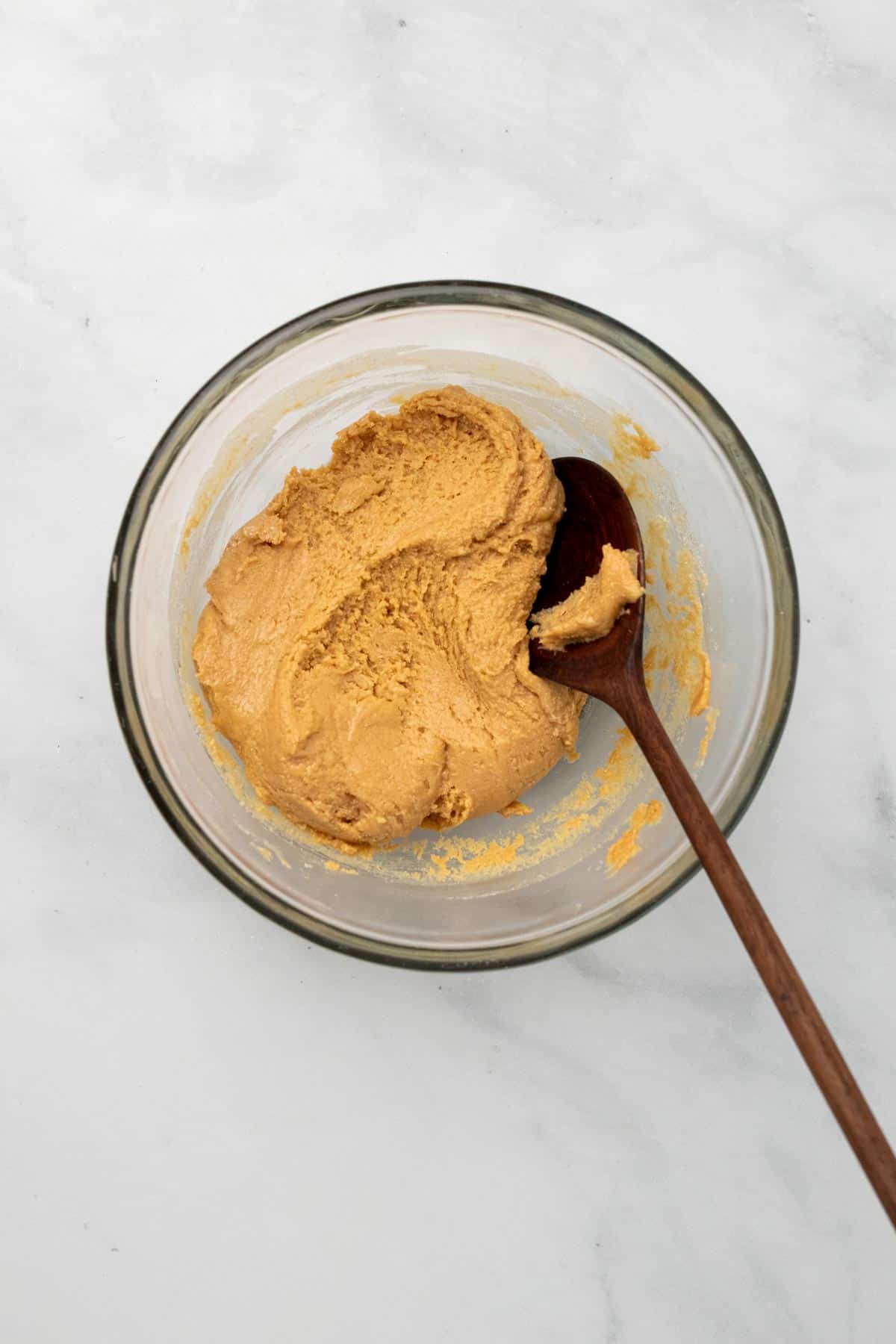
Step 4: Add the protein bar batter to the loaf pan and press to fill the pan. Sprinkle chopped peanuts on top and press in slightly
Step 5: Refrigerate for an hour or two until the protein bars are firm enough to be cut and served.
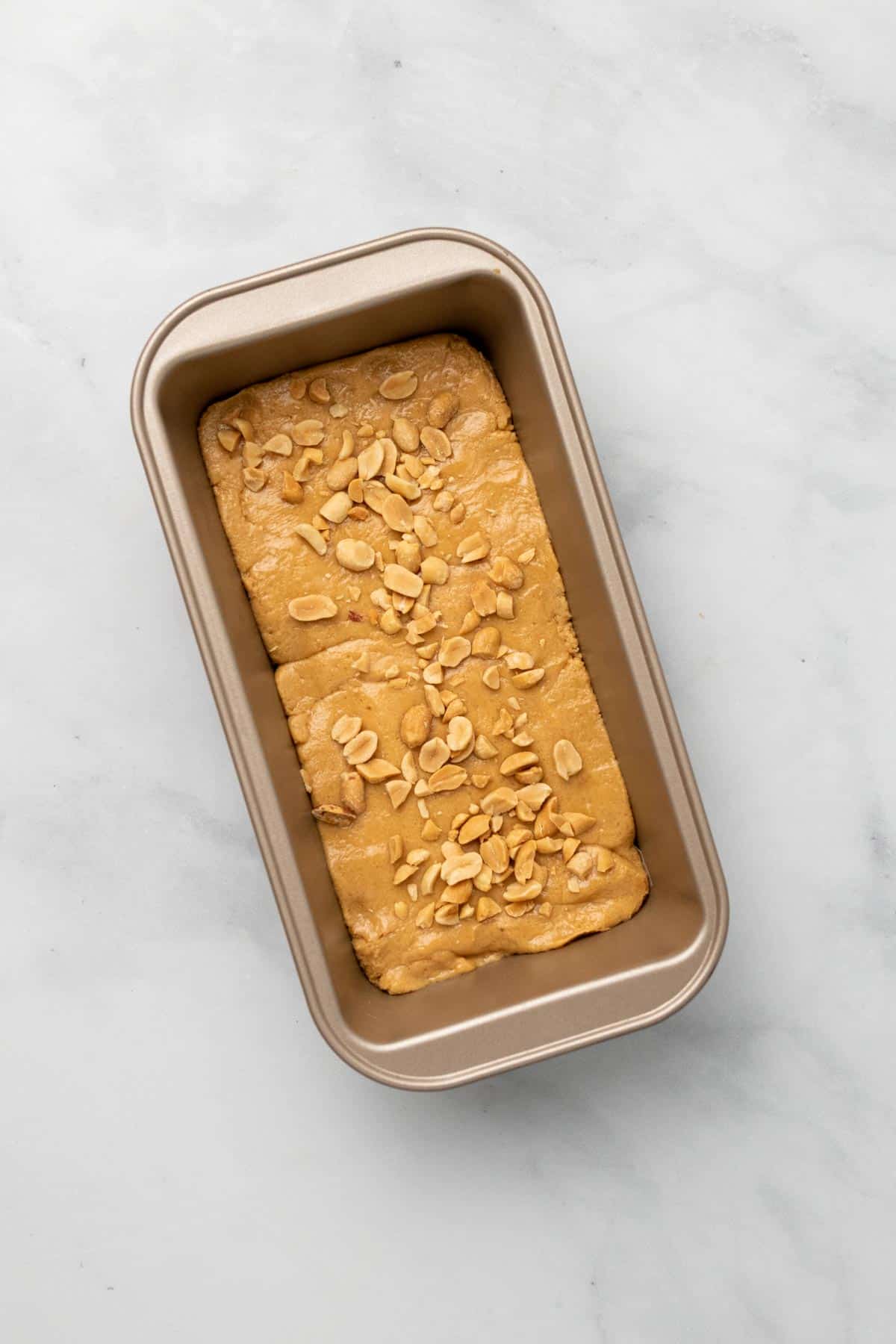
Playing with flavors
Any nut or seed butter can be substituted in equal quantities for this recipe. Just make sure to use nut or seed butters that are natural and without any added salts and sugars to keep these homemade protein bars low-carb and diabetes-friendly.
Another way you can adjust the flavor of the protein bars to your liking is by switching up which protein powders you use. Vanilla, chocolate, cookies and cream, and peanut butter flavors all are really delicious and work well in these bars.
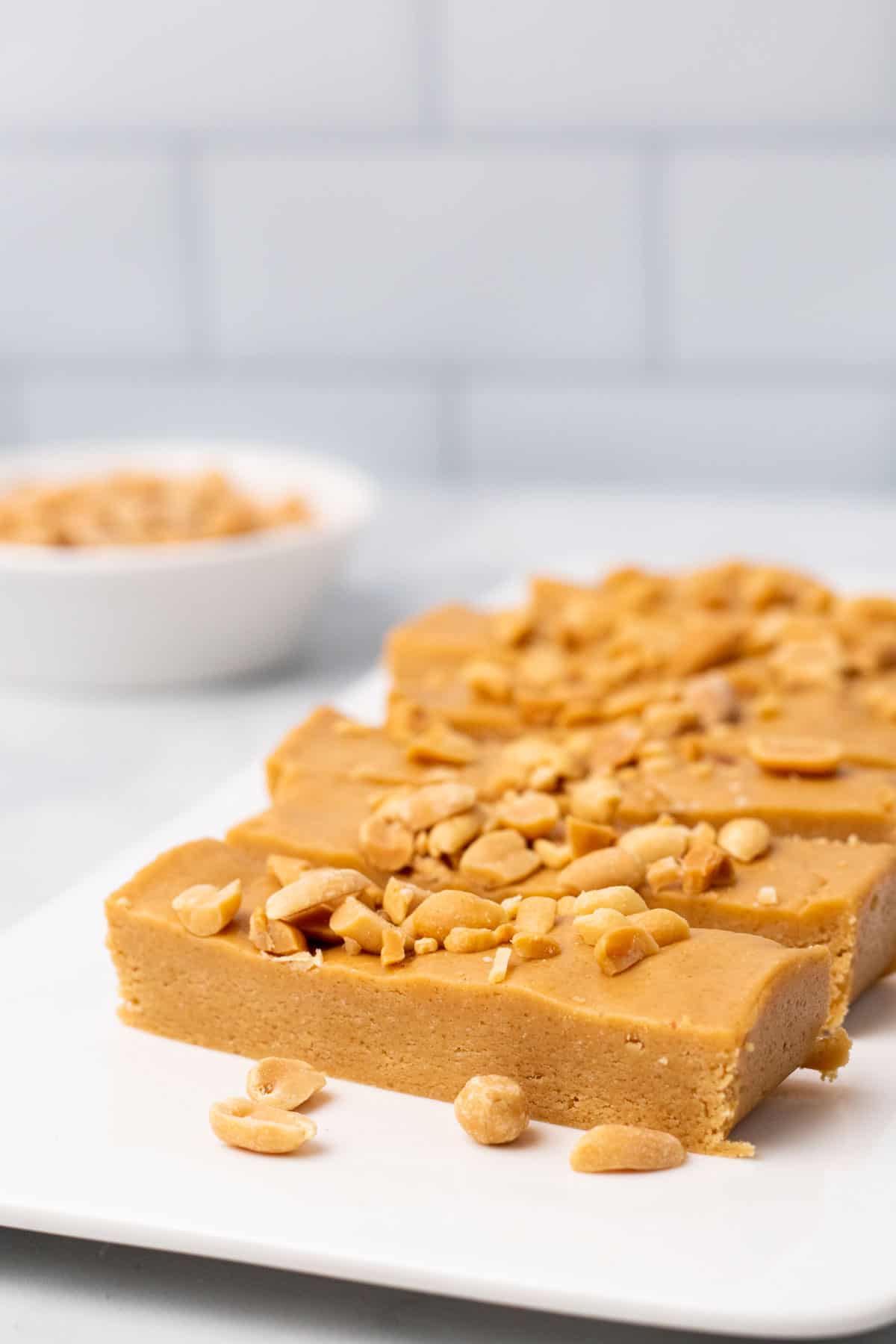
Storing the bars
The protein bars can be stored for several days in the refrigerator.
Because they are made of peanut butter, they can melt if left outside the fridge on a hot day. I recommend eating them almost straight from the fridge or keeping them cool if you want to bring them with you.
Other low-carb snacks
Here are a few other low-carb snack recipes you might enjoy:
You can also read this roundup I created of 10 easy low-carb dessert recipes for even more inspiration!
When you’ve made your own homemade protein bars, please don’t forget to let me know how you liked them and rate the recipe in the comments below!
Easy Homemade Protein Bars
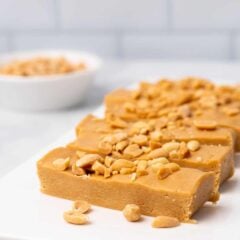
Ingredients
- ½ cup coconut flour
- ¼ cup vanilla protein powder, (any low-carb brand)
- 1 teaspoon Stevia
- 1 cup natural peanut butter, (no salt & sugar added)
- ¼ cup + 2 tbsp. sugar-free syrup
- ¼ cup chopped peanuts
Instructions
- Line a small loaf pan with parchment paper and set aside.
- In a large glass or microwave-safe bowl, combine your nut butter with your sugar-free syrup. Heat it for 1 – 2 minutes in the microwave, mixing every 15 seconds until smooth and easy to mix together.
- Add in the coconut flour, protein powder, and stevia powder and mix well.
- Tip: How well the dough comes together depends on the brand of nut butter you use. You can add more coconut flour 1 tablespoon at a time if the dough seems to wet. Add a teaspoon or two of syrup more if the dough is too thick and not coming together easily.
- Add the protein bar batter to the loaf pan and press to fill the pan. Sprinkle chopped peanuts on top and press in slightly
- Refrigerate for an hour or two until the protein bars are firm enough to be cut and served.

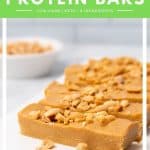
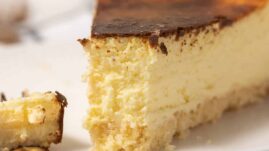
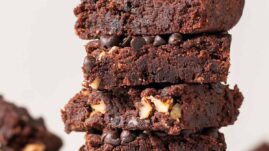
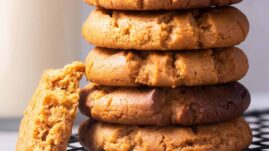
Rasika Dugal
I am Fitness Freak and searching for Protein food item which have less carbs and this is amazing food
Henning Amanda
those bars look good. I’ll try to follow your instruction sometime.